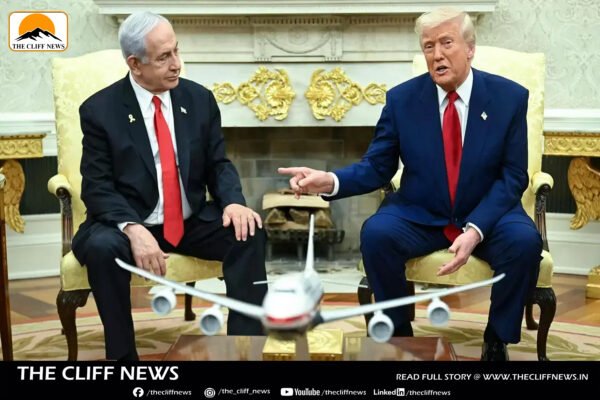China Begins Mega Hydropower Project on Yarlung Zangbo: India Warns of ‘Water Bomb’ Threat in Arunachal
China’s official launch of a massive hydropower project on the Yarlung Zangbo river — just before it enters India’s Arunachal Pradesh as the Brahmaputra — has triggered serious strategic and environmental concerns for India. The project, unveiled by Chinese Premier Li Qiang on July 19, is being touted as China’s most ambitious infrastructure venture since the Three Gorges Dam. China’s $170 Billion Megaproject With an estimated investment of nearly $170 billion, the new hydropower project will include five cascade power stations across a 50-kilometre stretch of the river that drops nearly 2,000 metres in elevation. Its planned capacity of 60 GW would make it nearly three times larger than the Three Gorges Dam. To build and operate the project, Beijing has formed a new state-owned entity – China Yajiang Group Co. Ltd.. Although the project will almost certainly include water storage facilities to regulate flow between stations, China has not disclosed how much water will be held — a critical concern for India. Chinese markets responded positively to the announcement, with infrastructure and equipment company stocks witnessing strong gains. Experts suggest the project will serve as a major economic stimulus domestically. Arunachal Pradesh Sounds the Alarm On the Indian side, especially in Arunachal Pradesh’s Siang region, the development has sparked anxiety. Chief Minister Pema Khandu has labelled the Chinese dam as the biggest non-military threat facing India. Speaking to PTI earlier this month, Khandu warned of a catastrophic scenario: “Suppose the dam is built and they suddenly release water, our entire Siang belt would be destroyed… particularly the Adi tribe and nearby communities.” Though only 30% of the Brahmaputra’s water originates in China, any sudden discharge or mismanagement upstream could heavily impact the Siang belt, which lies directly in the path of the river as it flows from Tibet into India. Concerns also extend to India’s hydropower ambitions. Arunachal Pradesh alone holds about 50 GW of India’s untapped 60 GW hydropower potential in the region. A disruption in natural water flow could affect multiple proposed hydroelectric projects downstream. India’s Strategic Response: Upper Siang Project To counter Beijing’s dam strategy, India has put forward the Upper Siang Multipurpose Project — an 11.2 GW storage-based dam planned in the Siang district of Arunachal Pradesh. Once completed, it would serve both as a hydropower source and a strategic buffer, regulating flow and protecting downstream populations from sudden floods or disruptions. However, progress on India’s project has been slow, raising concerns about preparedness in the face of China’s rapid upstream development. As tensions rise and infrastructure races accelerate on both sides of the border, the Yarlung Zangbo–Brahmaputra river basin may soon become not just a geopolitical flashpoint, but also a test case for balancing development with transboundary water security.










